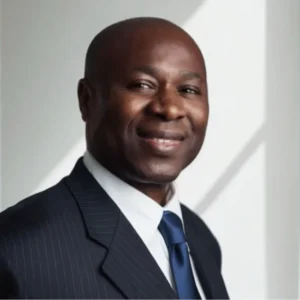The Urgency of Linguistic Unity for Ghana’s Future
Ghana stands at a critical juncture, facing complex challenges that demand innovative solutions. Among these, the imperative to establish a National Institute of Languages emerges as a foundational step toward transitioning the nation into true modernity. This initiative is not merely about linguistic preservation or academic pursuit; it is a strategic necessity to unlock Ghana’s full potential and prevent it from being tethered to a cycle of underdevelopment.
We must approach this with the same seriousness and resolve that we would address issues like illegal mining (Galamsey), unchecked billboards, or systemic corruption. The fragmented linguistic landscape, if left unaddressed, risks becoming another formidable barrier to progress, perpetuating indiscipline and hindering collective national advancement.
Overcoming the ‘Tower of Babel’ Challenge for Global Competitiveness
Contents
Every nation grapples with its own version of the ‘Tower of Babel’ problem – the inherent complexities arising from linguistic diversity. However, in an increasingly globalized world where knowledge and innovation are paramount, nations that fail to strategically manage and leverage their linguistic assets by 2050 risk being relegated to the periphery. To continue without a bold vision for linguistic cohesion is to inadvertently commit to perpetual consumption rather than creation, to remain a follower rather than a leader in the global knowledge economy. Ghana, with its vibrant cultural tapestry, cannot afford to enter 2050 with over 70 distinct dialects and languages without a unifying strategy; such fragmentation risks a new form of enslavement, where our intellectual and economic independence is compromised.
Harnessing Ghana’s Major Languages: A Strategic Opportunity
Despite the apparent complexity, the solution lies within our grasp. All Ghanaian languages trace their origins back to Proto-Niger-Congo, dating approximately to 3500 BCE. More importantly, the dominance of four major languages presents a unique opportunity to begin to solve this ‘Tower of Babel’ problem and lay the groundwork for a cohesive national identity and a robust knowledge-based society. The conceptual work, in many ways, has already begun.
- TWI (Central/Southern Ghana)
- Path: Niger-Congo → Atlantic-Congo → Volta-Congo → Kwa → Potou-Tano → Akan → Twi
- Approximately 9.1 million speakers, making it the largest Ghanaian language.
- Encompasses significant varieties such as Asante Twi, Akuapem Twi, and Fante.
- EWE (Volta Region)
- Path: Niger-Congo → Atlantic-Congo → Volta-Congo → Volta-Niger → Gbe → Ewe
- Spoken by approximately 3.82 million people, also prevalent in Togo and Benin.
- Historically classified under Kwa, it is now recognized within the Volta-Niger branch.
- DAGBANI (Northern Ghana)
- Path: Niger-Congo → Atlantic-Congo → Volta-Congo → Savannas Group → Gur → Mole-Dagbani → Dagbani
- Spoken by about 1.16 million individuals primarily in the Northern Region.
- It is the most distantly related among these four dominant languages.
- GA (Greater Accra)
- Path: Niger-Congo → Atlantic-Congo → Volta-Congo → Kwa → Ga-Dangme → Ga
- With around 745,000 speakers, it is concentrated around the capital city of Accra.
- While belonging to the Kwa branch like Twi, it represents a distinct subgroup.
Towards a Unified Linguistic Future for Ghana
The time has come for Ghana to demonstrate true courage and ingenuity. We must rise above the habitual confusion and inaction that have plagued similar challenges. The opportunity exists to undertake something truly monumental: to intelligently recombine elements of our four prominent languages into one cohesive second national language. This bold initiative would not erase our rich linguistic heritage but rather provide a unified platform for communication, education, and innovation, fostering a stronger national identity.
By embracing this vision, Ghana can position itself to thrive in a world where knowledge is power, ensuring that our nation contributes meaningfully to global progress rather than merely consuming the innovations of others. This is a crucial step towards securing Ghana’s future as a truly modern, self-reliant, and prosperous nation.
![NBOSI-01[1] NBOSI-01[1]](https://cloudypos.com/nbosi/wp-content/uploads/sites/59/elementor/thumbs/NBOSI-011-rc3u2ljhmnhjs84d8kcrtfc3b1mya82rhqxld85wl8.png)




